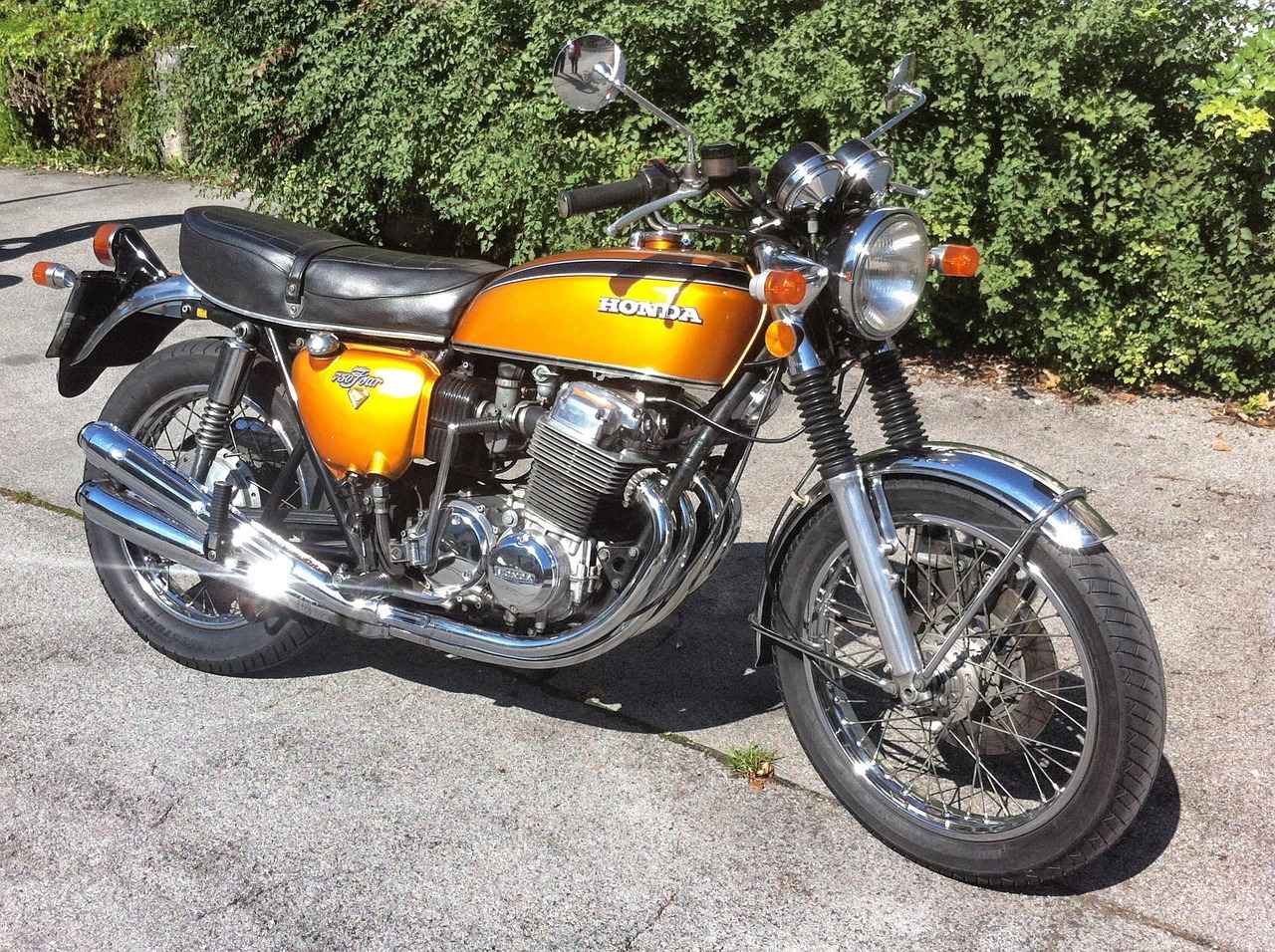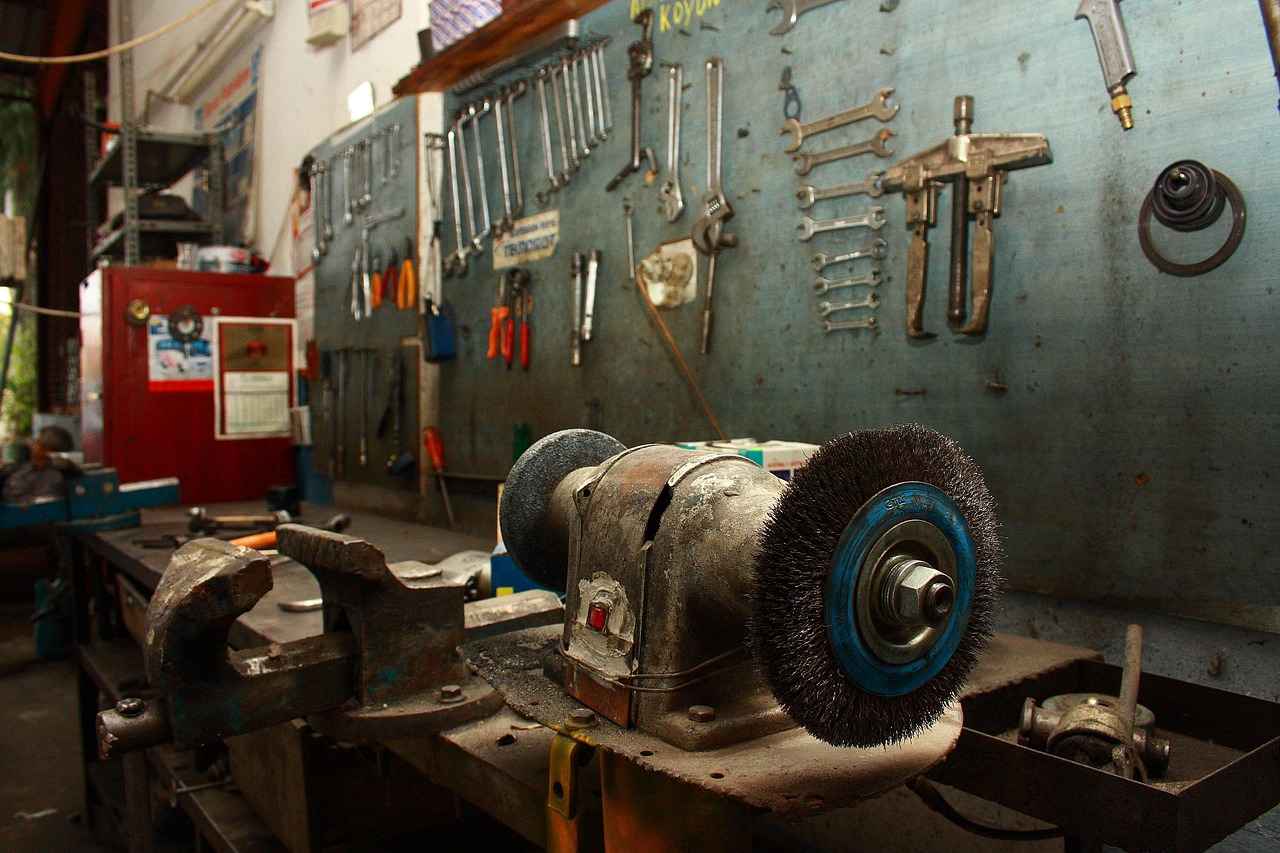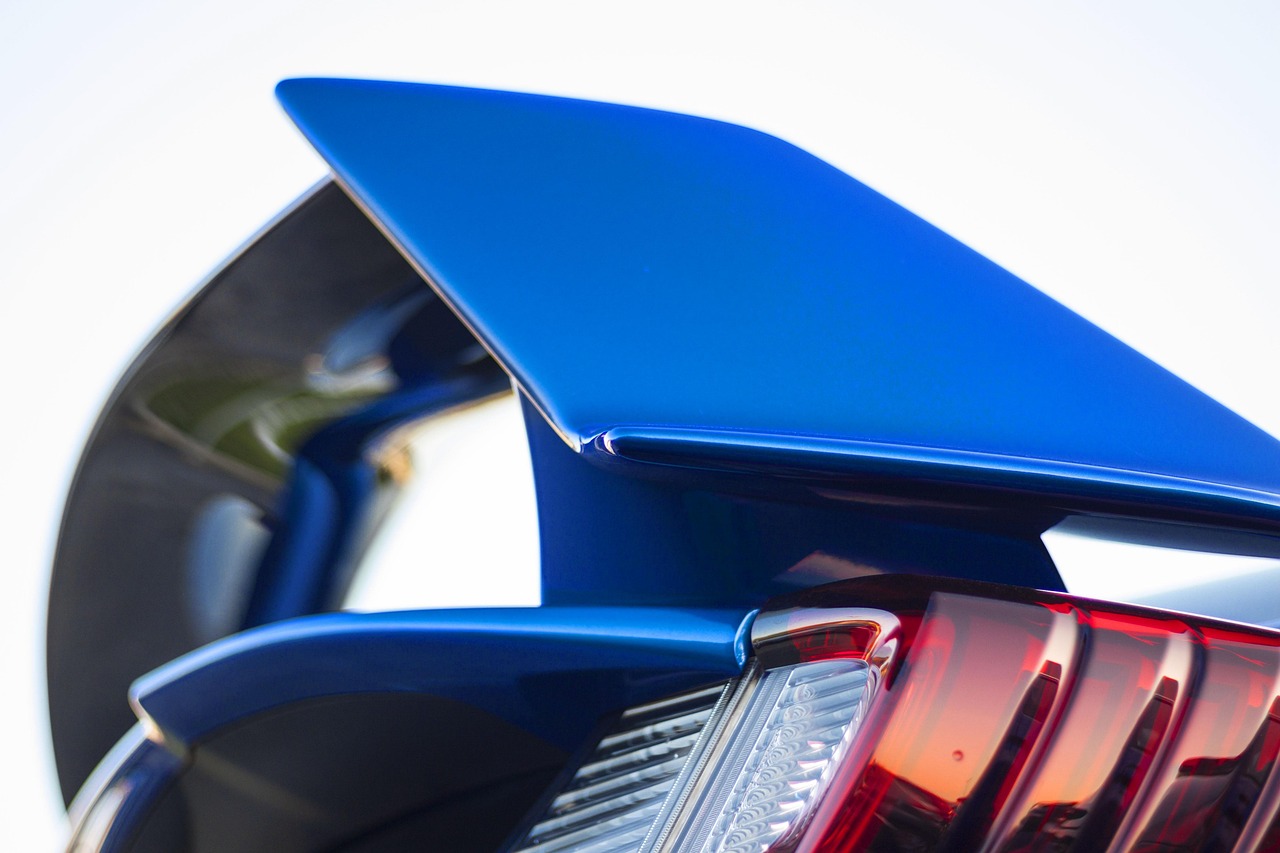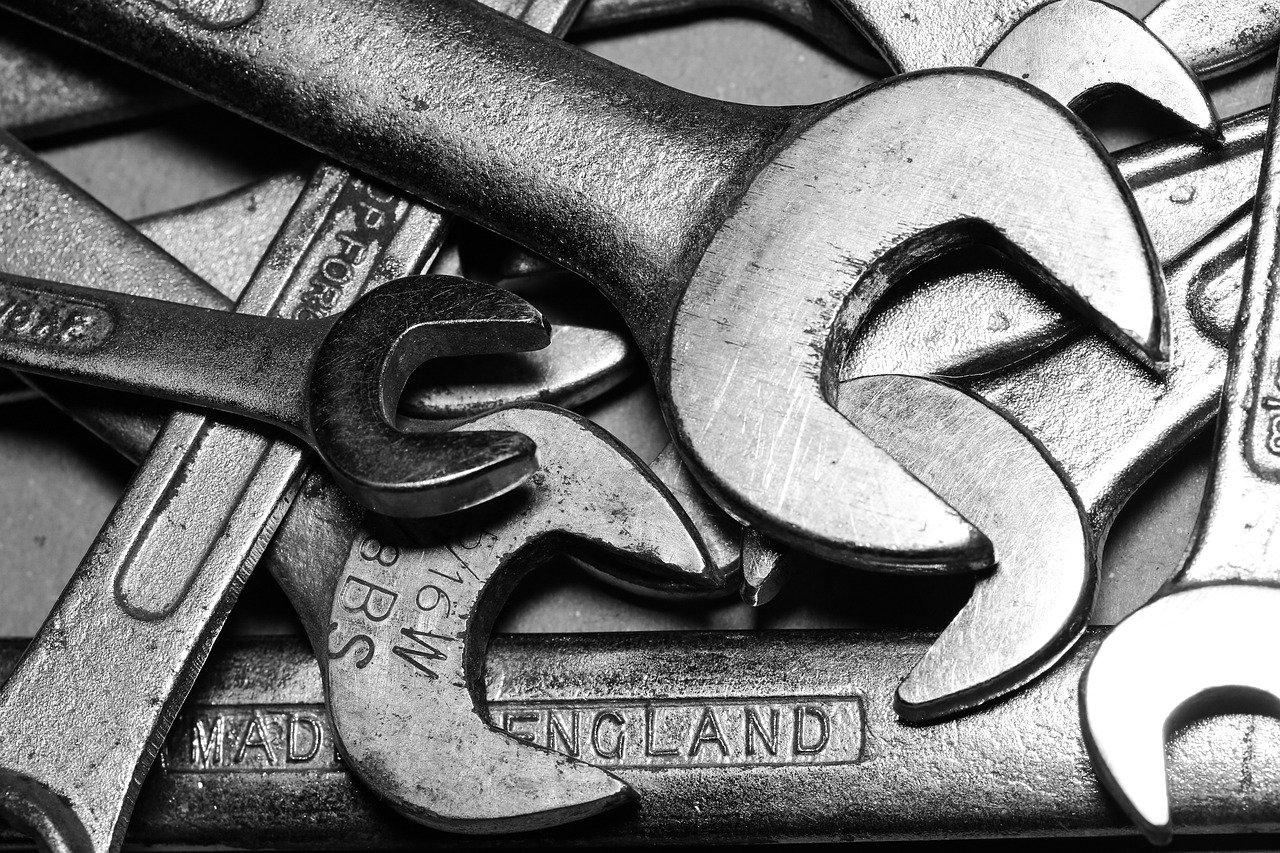The Honda Accord has long been recognized for its durability and reliability. This article delves into the longevity of the Honda Accord, examining essential factors influencing its lifespan, offering maintenance tips, and sharing real-world experiences from owners. By the end, you will gain a comprehensive understanding of how many miles a Honda Accord can last.
The average lifespan of a Honda Accord typically ranges from 200,000 to 300,000 miles. However, this can vary significantly based on factors such as maintenance, driving habits, and the specific model year.
Several key factors can influence the longevity of a Honda Accord:
- Driving Conditions: Urban driving can be harsher than highway driving.
- Maintenance Practices: Regular upkeep is crucial for longevity.
- Model Reliability: Some models are inherently more reliable than others.
Driving conditions play a significant role in the wear and tear of a Honda Accord. For instance:
- City vs. Highway Driving: City driving often involves stop-and-go traffic, which can lead to increased engine wear.
- Climate Considerations: Extreme weather conditions can affect vehicle components, influencing the overall lifespan.
To ensure your Honda Accord remains in top condition, owners should prioritize the following maintenance tasks:
- Oil Changes: Regular oil changes are vital for engine health.
- Tire Maintenance: Proper tire care, including rotation and alignment, enhances safety and fuel efficiency.
Owners should focus on routine maintenance tasks such as:
- Regular oil changes to ensure proper lubrication.
- Tire rotations to maintain even wear.
- Brake inspections to ensure safety.
Many Honda Accord owners have shared their experiences, with numerous reports indicating that well-maintained vehicles can exceed 300,000 miles. Testimonials from long-time owners often highlight the reliability and durability of the Accord.
While many Accords last long, some owners report specific issues that may arise as the vehicle ages, including:
- Transmission problems in older models.
- Electrical system issues.
When compared to other midsize sedans, the Honda Accord often ranks high for longevity:
- Honda Accord vs. Toyota Camry: Both vehicles frequently exceed 200,000 miles.
- Honda Accord vs. Ford Fusion: The Fusion generally has a shorter lifespan, underscoring Honda’s engineering excellence.
Implementing specific strategies can help maximize your Honda Accord’s lifespan:
- Routine Inspections: Regular inspections can help identify potential issues early.
- Driving Habits: Gentle driving habits, like avoiding rapid acceleration, can significantly reduce wear and tear.
In summary, with proper care and maintenance, a Honda Accord can provide reliable performance for many miles, making it a wise investment for any vehicle owner.

What is the Average Lifespan of a Honda Accord?
The Honda Accord is renowned for its reliability and longevity, making it a popular choice among car buyers. When considering the average lifespan of a Honda Accord, it’s essential to understand that this can vary significantly based on a variety of factors. Typically, the lifespan of a Honda Accord can range from 200,000 to 300,000 miles. However, this range is influenced by maintenance practices, driving habits, and the specific model year.
The average lifespan of a Honda Accord can vary significantly based on maintenance, driving habits, and model year, typically ranging between 200,000 to 300,000 miles. Many owners report that with diligent care and regular maintenance, their Accords not only reach this mileage but often exceed it. For instance, numerous testimonials highlight vehicles surpassing 300,000 miles without major issues, showcasing Honda’s engineering excellence.
Several key factors can influence how long a Honda Accord lasts:
- Driving Conditions: Urban driving can be harsher on vehicles than highway driving.
- Maintenance Practices: Regular maintenance can significantly extend the lifespan of any vehicle.
- Model Reliability: Certain model years have proven to be more reliable than others.
Driving conditions can dramatically affect the wear and tear on a Honda Accord. For example, city driving often involves more stop-and-go traffic, leading to increased engine wear compared to the smoother operation of highway driving. Additionally, extreme weather conditions, such as excessive heat or cold, can affect vehicle components, impacting the overall lifespan of a Honda Accord.
Regular maintenance is crucial for extending the life of any vehicle, including the Honda Accord. Owners should prioritize routine maintenance tasks such as:
- Oil Changes: Regular oil changes are vital for maintaining engine health.
- Tire Maintenance: Proper tire care enhances safety and fuel efficiency.
- Brake Inspections: Keeping brakes in top condition is essential for safety.
Many Honda Accord owners share their personal experiences, with numerous reports of vehicles exceeding 300,000 miles with proper care. Testimonials from long-time Honda Accord owners provide valuable insights into the vehicle’s reliability and durability over time. However, while many Accords last long, some owners report specific issues that can arise as the vehicle ages, which may impact overall performance.
When compared to other midsize sedans, the Honda Accord often ranks high for longevity. For example:
- Honda Accord vs. Toyota Camry: Both vehicles often exceed 200,000 miles.
- Honda Accord vs. Ford Fusion: The Ford Fusion generally has a shorter lifespan, highlighting Honda’s engineering excellence.
Implementing specific strategies can help Honda Accord owners maximize their vehicle’s lifespan:
- Routine Inspections: Conducting regular inspections can help identify potential issues before they become significant problems.
- Gentle Driving Habits: Adopting gentle driving habits, such as avoiding rapid acceleration and hard braking, can significantly reduce wear and tear on a Honda Accord.
In summary, the Honda Accord’s average lifespan is influenced by a variety of factors, including maintenance, driving conditions, and model reliability. By adhering to recommended maintenance practices and driving habits, owners can significantly extend the life of their Honda Accord, ensuring reliable performance for many years.

Factors Affecting the Longevity of a Honda Accord
The longevity of a Honda Accord is a topic of great interest for both current and prospective owners. Understanding the various factors that can influence the lifespan of this popular sedan can help owners make informed decisions about maintenance and driving practices. In this section, we will explore the key elements that contribute to the longevity of a Honda Accord.
Several factors can significantly impact how long a Honda Accord can last. Among these, driving conditions, maintenance practices, and the vehicle’s inherent reliability play crucial roles.
- Driving Conditions: The environment in which a vehicle operates can greatly affect its lifespan. Urban driving, characterized by frequent stops and starts, can lead to increased wear on the engine and brakes compared to highway driving, where the vehicle maintains a constant speed.
- Maintenance Practices: Regular maintenance is essential for prolonging the life of any vehicle. Honda Accord owners should prioritize routine oil changes, tire rotations, and brake inspections. Neglecting these tasks can lead to premature wear and costly repairs.
- Model Reliability: Honda has built a reputation for producing reliable vehicles. The inherent design and engineering of the Accord contribute to its longevity, with many models designed to withstand high mileage with proper care.
The driving environment can significantly affect a Honda Accord’s longevity. For instance, driving in urban settings often exposes the vehicle to harsher conditions than highway driving.
- City vs. Highway Driving: City driving involves more frequent acceleration and deceleration, which can lead to increased engine wear. Conversely, highway driving typically allows for smoother operation, contributing to better fuel efficiency and less wear on the vehicle.
- Climate Considerations: Extreme temperatures can also affect vehicle components. For example, excessive heat may cause engine overheating, while cold weather can lead to battery issues. Owners should be mindful of these factors and take preventive measures, such as using engine coolant and maintaining battery health.
To ensure a Honda Accord remains in optimal condition, owners should adopt a proactive approach to maintenance.
- Oil Changes and Engine Care: Regular oil changes are vital for maintaining engine health. Fresh oil ensures proper lubrication, reducing friction among components and preventing engine wear.
- Tire Maintenance and Performance: Proper tire maintenance, including regular rotations and alignments, not only enhances safety but also improves fuel efficiency. Well-maintained tires contribute to the overall performance and longevity of the vehicle.
Many Honda Accord owners report impressive mileage achievements, with numerous vehicles exceeding 300,000 miles with diligent care. These real-world experiences provide valuable insights into the vehicle’s reliability.
- Owner Testimonials and Insights: Long-time Honda Accord owners often share their positive experiences, highlighting the vehicle’s durability and low maintenance costs over the years.
- Common Issues Reported by Owners: While many Accords enjoy long lives, some owners do report specific issues, such as transmission problems or electrical failures, particularly in older models. Awareness of these potential issues can help owners take preventive measures.
When compared to other midsize sedans, the Honda Accord frequently ranks high for longevity and reliability.
- Honda Accord vs. Toyota Camry: Both vehicles are known for their durability, often exceeding 200,000 miles. However, the Accord is frequently praised for its superior handling and driving experience.
- Honda Accord vs. Ford Fusion: The Ford Fusion generally has a shorter lifespan compared to the Honda Accord, underscoring Honda’s engineering excellence in producing long-lasting vehicles.
Implementing specific strategies can help Honda Accord owners maximize their vehicle’s lifespan.
- Routine Inspections and Preventive Care: Regular inspections can help identify potential issues before they escalate, ensuring the vehicle remains in top condition.
- Driving Habits That Promote Longevity: Gentle driving habits, such as avoiding rapid acceleration and hard braking, can significantly reduce wear and tear on the vehicle, contributing to a longer lifespan.
Driving Conditions and Their Impact
When it comes to the longevity of vehicles, understanding the impact of driving conditions is crucial. One significant factor that affects the wear and tear on a car like the Honda Accord is the type of driving environment it operates in. In urban settings, the driving experience can be markedly different from that on highways, leading to various implications for vehicle health.
Urban driving presents unique challenges that can accelerate the deterioration of vehicle components. Frequent stops, starts, and the need for rapid acceleration in congested areas can lead to increased strain on the engine and transmission. This contrasts sharply with highway driving, where vehicles can maintain a consistent speed, reducing mechanical stress.
In cities, drivers often encounter stop-and-go traffic, which can lead to:
- Increased Brake Wear: Constantly applying brakes can lead to premature wear on brake pads and rotors.
- Engine Overheating: Frequent acceleration can cause the engine to run hotter than it would during steady highway driving.
- Transmission Stress: Frequent shifting between gears can lead to early transmission issues.
Urban roads often suffer from potholes, uneven surfaces, and debris, which can contribute to:
- Suspension Damage: Poor road conditions can lead to misalignment and damage to the suspension system.
- Tire Wear: Navigating rough surfaces can cause uneven tire wear and the need for more frequent replacements.
While highway driving allows for a smoother ride, urban environments demand more from vehicles. Studies show that cars driven primarily in urban settings may experience a lifespan reduction of up to 20% compared to those primarily used on highways. This statistic underscores the importance of understanding how driving conditions can significantly impact vehicle longevity.
Additionally, urban environments often feature extreme weather conditions, which can exacerbate the wear on vehicles. For instance:
- Heat: High temperatures can lead to overheating, affecting engine performance and battery life.
- Cold: In colder climates, battery efficiency can decline, and fluids may thicken, making it harder for the engine to operate smoothly.
For Honda Accord owners who primarily drive in urban settings, adopting certain preventive measures can help mitigate the adverse effects of city driving:
- Regular Maintenance: Frequent oil changes and inspections can help identify issues early.
- Driving Habits: Gentle acceleration and braking can reduce wear on the engine and brakes.
- Quality Tires: Investing in high-quality tires can improve performance and safety on urban roads.
By understanding the unique challenges posed by urban driving, Honda Accord owners can take proactive steps to ensure their vehicles remain reliable and efficient over time.
City vs. Highway Driving
When it comes to understanding the impact of driving conditions on vehicle longevity, the distinction between city driving and highway driving is crucial. Each environment presents unique challenges that can significantly affect the wear and tear on a vehicle, including popular models like the Honda Accord.
City driving is often characterized by frequent stops, accelerations, and turns. This type of driving can lead to increased engine wear due to the following reasons:
- Frequent Acceleration and Deceleration: Constantly stopping and starting puts additional strain on the engine and transmission. This can lead to premature wear on components, especially if the vehicle is not well-maintained.
- Increased Idling Time: Vehicles in urban settings often spend more time idling at traffic lights or in congested areas. This can cause the engine to run inefficiently, leading to carbon build-up and reduced overall performance.
- Short Trips: Many city drivers take short trips, which may not allow the engine to reach its optimal operating temperature. This can result in incomplete combustion and increased fuel consumption.
In contrast, highway driving typically involves longer distances and consistent speeds, which can be more beneficial for vehicle health. Here are some advantages:
- Less Engine Strain: The engine operates more efficiently at a constant speed, reducing the stress on various components.
- Improved Fuel Efficiency: Highway driving usually results in better fuel economy, as vehicles are designed to perform optimally at higher speeds.
- Reduced Wear on Brakes: Less frequent braking means that brake pads and rotors last longer, contributing to lower maintenance costs.
To illustrate the differences in wear and tear, consider the following:
| Factor | City Driving | Highway Driving |
|---|---|---|
| Engine Wear | Higher due to frequent starts and stops | Lower with steady speed |
| Fuel Efficiency | Typically lower | Generally higher |
| Brake Wear | Increased wear from frequent braking | Less wear due to fewer stops |
| Maintenance Needs | More frequent maintenance required | Less frequent maintenance needed |
Ultimately, the way you drive can have a profound impact on your vehicle’s longevity. Adopting smoother driving habits and ensuring regular maintenance can help mitigate the adverse effects of city driving. Understanding these differences is essential for Honda Accord owners and anyone looking to maximize their vehicle’s lifespan.
Climate Considerations
When considering the longevity of a Honda Accord, one cannot overlook the significant impact of climate conditions on vehicle performance and durability. Extreme weather, whether it be excessive heat or frigid cold, can lead to a variety of challenges that may affect the vehicle’s components and overall lifespan.
In regions where temperatures soar, the effects on a vehicle can be profound. High temperatures can lead to:
- Overheating Engines: Prolonged exposure to extreme heat can cause engine components to overheat, potentially leading to engine damage.
- Degraded Fluids: Engine oil, transmission fluid, and coolant can break down faster in high temperatures, reducing their effectiveness.
- Battery Lifespan Reduction: Excessive heat can shorten the lifespan of your car battery, leading to unexpected failures.
On the other hand, extremely cold temperatures can also pose challenges for Honda Accord owners. Some of the effects include:
- Thickening Fluids: Cold weather can cause engine oil to thicken, which impedes proper lubrication and can lead to increased wear.
- Battery Efficiency: Cold temperatures can reduce battery capacity, making it harder to start the vehicle.
- Tire Pressure Drops: Cold weather can cause tire pressure to decrease, affecting handling and fuel efficiency.
To enhance the longevity of your Honda Accord in varying climates, consider the following maintenance tips:
- Regular Fluid Checks: Ensure that all fluids are at the appropriate levels and are suitable for the climate. Use synthetic oils that perform well in extreme temperatures.
- Battery Maintenance: Inspect your battery regularly, especially before winter, to ensure it is functioning optimally.
- Tire Maintenance: Regularly check tire pressure and tread depth, and consider using winter tires in cold climates to enhance safety and performance.
Many Honda Accord owners have shared their experiences regarding the impact of climate on their vehicles. Owners in hotter regions often emphasize the importance of:
- Frequent Oil Changes: They report that changing oil more frequently in hot weather has helped maintain engine health.
- Cooling System Checks: Regular checks of the cooling system are crucial to prevent overheating.
Conversely, owners in colder climates often highlight the importance of:
- Winterizing their Vehicles: Preparing their Honda Accord for winter by ensuring antifreeze levels are adequate and using appropriate tires.
- Battery Inspections: They recommend checking battery connections and considering battery warmers for extremely cold conditions.
In summary, climate considerations play a vital role in the longevity of a Honda Accord. By understanding the specific challenges posed by extreme heat and cold, owners can take proactive measures to mitigate these effects, ensuring their vehicle remains reliable and performs optimally throughout its lifespan.
Maintenance Practices That Extend Lifespan
Ensuring the longevity of your vehicle, particularly a reliable model like the Honda Accord, hinges significantly on regular maintenance. This proactive approach not only enhances performance but also prevents costly repairs down the line. Below, we explore essential maintenance practices that every Honda Accord owner should prioritize.
One of the most critical maintenance tasks is regular oil changes. Engine oil serves as the lifeblood of your vehicle, lubricating moving parts and reducing friction. Over time, oil degrades and loses its effectiveness, which can lead to engine wear and potential failure. It is generally recommended to change the oil every 5,000 to 7,500 miles, depending on your driving conditions and the type of oil used.
Proper tire maintenance is essential for both safety and vehicle longevity. Regularly checking tire pressure, rotating tires every 5,000 to 7,500 miles, and ensuring proper alignment can significantly improve fuel efficiency and extend the life of your tires. Under-inflated tires can lead to uneven wear and reduced handling, while over-inflated tires can compromise ride comfort and safety.
Brakes are a vital safety component of any vehicle. Regular inspections can help identify issues such as worn brake pads or low brake fluid levels before they become critical. It’s advisable to have your brakes checked at least once a year or every 10,000 miles, depending on your driving habits.
In addition to oil, several other fluids require regular attention. These include:
- Coolant: Prevents overheating and protects the engine.
- Transmission Fluid: Ensures smooth gear shifts and prolongs transmission life.
- Brake Fluid: Essential for effective braking performance.
Regularly checking and replacing these fluids can prevent significant issues and enhance the overall performance of your Honda Accord.
The air filter plays a crucial role in maintaining engine efficiency by ensuring a clean air supply. A clogged air filter can reduce performance and fuel economy. Similarly, the cabin air filter is essential for providing clean air inside the vehicle. Replacing these filters every 15,000 to 30,000 miles can help maintain optimal performance.
Battery life can be influenced by various factors, including climate and driving habits. Regularly checking the battery terminals for corrosion and ensuring a secure connection can extend battery life. If your battery is over three years old, consider having it tested annually to avoid unexpected failures.
Many Honda Accord owners emphasize the importance of preventive maintenance. Testimonials reveal that those who adhere to a strict maintenance schedule often report fewer issues and enjoy longer vehicle lifespans. Engaging with fellow owners through forums can provide valuable insights and tips for maintaining your Accord.
In summary, adopting these maintenance practices is crucial for extending the lifespan of your Honda Accord. By prioritizing regular oil changes, tire maintenance, brake inspections, and fluid checks, you can ensure your vehicle remains reliable and efficient for years to come.

What Maintenance Should Honda Accord Owners Prioritize?
Maintaining your Honda Accord is essential for ensuring its longevity and optimal performance. As a vehicle owner, understanding the key maintenance tasks can help you keep your car in excellent condition. This article delves into the maintenance priorities that every Honda Accord owner should consider.
To enhance the lifespan of your Honda Accord, it is crucial to focus on routine maintenance tasks. Here are some of the most important ones:
- Oil Changes: Regular oil changes are vital for maintaining engine health. They ensure that the engine is properly lubricated, reducing friction and preventing wear. It’s recommended to change the oil every 5,000 to 7,500 miles, depending on your driving conditions.
- Tire Rotations: Tire maintenance is not just about keeping them inflated. Regular rotations help ensure even wear and prolong tire life. Aim for rotations every 6,000 to 8,000 miles.
- Brake Inspections: Brakes are a critical safety component. Regular inspections can identify wear and tear early, preventing costly repairs and ensuring your safety on the road.
- Fluid Checks: Regularly check and top off essential fluids, including coolant, brake fluid, and transmission fluid. Keeping these fluids at optimal levels is crucial for overall vehicle performance.
- Battery Maintenance: Inspect your battery terminals for corrosion and ensure that the battery is securely mounted. A well-maintained battery can prevent unexpected breakdowns.
Incorporating these maintenance tasks into your routine will help ensure that your Honda Accord remains in top condition. Neglecting these essential services can lead to more significant issues down the line, potentially affecting the vehicle’s performance and longevity.
Understanding the frequency of these maintenance tasks is just as important as knowing what they are. Here’s a quick guide:
| Maintenance Task | Recommended Frequency |
|---|---|
| Oil Changes | Every 5,000 to 7,500 miles |
| Tire Rotations | Every 6,000 to 8,000 miles |
| Brake Inspections | Every 10,000 miles or as needed |
| Fluid Checks | Monthly |
| Battery Maintenance | Every 6 months |
By adhering to this maintenance schedule, Honda Accord owners can significantly reduce the risk of unexpected repairs and enhance their vehicle’s reliability.
Regular maintenance not only extends the life of your Honda Accord but also improves its performance and fuel efficiency. A well-maintained vehicle is less likely to experience breakdowns, ensuring a safer driving experience. Additionally, keeping up with maintenance can help retain the vehicle’s resale value, making it a wise investment in the long run.
In conclusion, prioritizing routine maintenance tasks such as oil changes, tire rotations, and brake inspections is crucial for Honda Accord owners. By staying on top of these tasks, you can enjoy a reliable and long-lasting vehicle that serves you well for many miles.
Oil Changes and Engine Care
Maintaining a vehicle’s engine health is crucial for its longevity, and one of the most effective ways to achieve this is through regular oil changes. These changes play a vital role in ensuring that the engine operates smoothly and efficiently. By replacing old oil with fresh oil, you not only improve lubrication but also significantly reduce friction among engine components, which can lead to increased wear and tear over time.
When we talk about engine care, it’s essential to understand the functions of engine oil. Engine oil serves multiple purposes, including:
- Lubrication: It creates a thin film between moving parts, minimizing direct contact and reducing friction.
- Cooling: Oil helps dissipate heat generated by engine components, preventing overheating.
- Cleaning: It collects dirt, debris, and contaminants, ensuring that these particles do not circulate through the engine.
- Sealing: Oil acts as a sealant for combustion chambers, preventing leaks and maintaining pressure.
Over time, however, engine oil breaks down due to heat, pressure, and contamination. This degradation can lead to a decrease in its effectiveness, which is why changing your oil regularly is paramount. Many manufacturers recommend changing the oil every 5,000 to 7,500 miles, but it’s essential to consult your owner’s manual for specific guidelines tailored to your vehicle.
Additionally, the type of oil you choose can also impact engine performance. There are primarily two types of engine oils: conventional and synthetic. While conventional oil is suitable for many vehicles, synthetic oil often provides better protection, especially for high-performance engines. It offers superior resistance to breakdown and can withstand higher temperatures, making it a great choice for those who drive in extreme conditions.
Another aspect to consider is the oil filter. During an oil change, it is crucial to replace the oil filter as well. A clean filter ensures that contaminants are effectively removed from the oil, allowing for better engine performance. Neglecting to replace the filter can lead to clogged passages and reduced oil flow, which can severely damage the engine.
Moreover, keeping an eye on oil levels and quality between changes is a good practice. Regularly checking the dipstick can help you monitor the oil condition and level. If the oil appears dark or gritty, or if the level is low, it may be time for an oil change, even if you haven’t reached the recommended mileage yet.
In summary, regular oil changes are not just a routine maintenance task; they are a fundamental aspect of engine care that can prolong the life of your vehicle. By ensuring proper lubrication, reducing friction, and maintaining cleanliness within the engine, you can enjoy a smoother driving experience and avoid costly repairs down the line. Remember, investing in your engine’s health today will pay dividends in the long run.
Tire Maintenance and Performance
Proper tire maintenance is essential for any vehicle owner, as it directly impacts vehicle safety, fuel efficiency, and overall longevity. In this section, we will delve into the significance of maintaining your tires, focusing on two critical aspects: tire rotation and alignment.
Tire rotation involves changing the position of each tire on your vehicle to ensure even wear. This practice is crucial for several reasons:
- Even Wear Distribution: By rotating your tires regularly, you can achieve a more uniform wear pattern across all four tires, extending their lifespan.
- Enhanced Safety: Tires that wear unevenly can lead to compromised handling and increased risk of blowouts, which can jeopardize your safety on the road.
- Improved Fuel Efficiency: Properly maintained tires contribute to better fuel economy. Unevenly worn tires can increase rolling resistance, causing your engine to work harder and consume more fuel.
Tire alignment refers to the adjustment of your vehicle’s suspension system, ensuring that your tires are positioned correctly relative to the road and each other. Here are key benefits of maintaining proper alignment:
- Prolonged Tire Life: Correct alignment reduces uneven tire wear, allowing you to get the most mileage out of your tires.
- Improved Handling: A well-aligned vehicle offers better steering response and control, enhancing your overall driving experience.
- Fuel Efficiency: Similar to tire rotation, proper alignment helps maintain optimal fuel economy by reducing drag and improving the efficiency of your vehicle.
Being proactive about tire maintenance can save you money and improve safety. Watch for these signs that your tires may need rotation or alignment:
- Uneven Tire Wear: If you notice that one side of your tire is wearing down faster than the other, it’s time for an alignment check.
- Vibration or Pulling: If your vehicle vibrates or pulls to one side while driving, it may indicate misalignment.
- Low Tire Pressure: Regularly check your tire pressure, as low pressure can lead to uneven wear and decreased fuel efficiency.
To keep your tires in optimal condition, consider following this maintenance schedule:
| Maintenance Task | Frequency |
|---|---|
| Tire Rotation | Every 5,000 to 7,500 miles |
| Tire Alignment Check | Every 6,000 miles or if you notice handling issues |
| Tire Pressure Check | Monthly and before long trips |
By adhering to these guidelines, you can ensure that your tires remain in good condition, enhancing your vehicle’s performance and safety. Remember, taking care of your tires is not just about extending their life; it’s also about ensuring a safe and efficient driving experience.

Real-World Experiences: How Long Do Honda Accord Owners Report?
The Honda Accord has long been celebrated for its durability and reliability, making it a favorite among car enthusiasts and everyday drivers alike. In this section, we delve into the real-world experiences of Honda Accord owners, focusing on how long these vehicles can truly last when properly maintained.
Many Honda Accord owners have shared their personal stories, and a significant number of them report that their vehicles have surpassed the impressive milestone of 300,000 miles with diligent care and maintenance. This remarkable longevity can often be attributed to a combination of factors, including regular maintenance, driving habits, and the inherent reliability of the Honda brand.
- Owner Testimonials: Many owners emphasize the importance of routine maintenance, sharing that consistent oil changes, timely brake inspections, and regular tire rotations have played a vital role in their vehicle’s longevity. One owner noted, “I never missed an oil change, and my Accord has been running smoothly for over 15 years!”
- High Mileage Reports: Numerous reports highlight vehicles exceeding 300,000 miles. Owners often share photos of their odometers as proof, reinforcing the Accord’s reputation for durability.
- Maintenance Practices: Honda Accord owners frequently discuss the impact of their maintenance routines. For instance, one owner shared, “I follow the maintenance schedule religiously, and it has made all the difference in my car’s performance.” This sentiment resonates with many, emphasizing that proactive care is essential.
While many Honda Accords enjoy long lives, some owners do report common issues that can arise as the vehicle ages:
- Transmission Problems: A few owners have experienced transmission issues, particularly in older models. Regular fluid changes can mitigate some of these concerns.
- Rust and Corrosion: In regions with harsh winters, some owners note that rust can develop, particularly on older models. Regular washing and undercoating can help prevent this issue.
- Electrical Components: As vehicles age, electrical components may begin to fail. Owners recommend staying on top of electrical maintenance to avoid larger issues down the line.
When comparing the longevity of the Honda Accord to other brands, it often stands out as a leader in the midsize sedan category. Many owners believe that the Accord’s engineering and design contribute significantly to its lifespan:
- Honda Accord vs. Toyota Camry: Both vehicles are known for their durability, but many Accord owners report longer mileage before major repairs are needed.
- Honda Accord vs. Ford Fusion: The Ford Fusion tends to have a shorter lifespan, with many owners noting that the Accord outlasts it by several years.
To ensure your Honda Accord reaches its maximum potential lifespan, consider the following tips shared by experienced owners:
- Routine Inspections: Conduct regular inspections to catch potential issues early. This proactive approach can save you from costly repairs later.
- Gentle Driving Habits: Avoid aggressive driving behaviors, such as rapid acceleration and hard braking, to minimize wear and tear on your vehicle.
- Stay Informed: Join online forums or local clubs to share experiences and learn from fellow Honda Accord owners. This community can provide valuable insights and support.
In conclusion, the Honda Accord has proven to be a reliable vehicle for many owners, with numerous reports of high mileage and positive experiences. By adhering to proper maintenance practices and adopting careful driving habits, you can maximize the lifespan of your Honda Accord and enjoy its performance for years to come.
Owner Testimonials and Insights
The Honda Accord has long been recognized for its reliability and durability, with many owners praising its performance over the years. The experiences shared by long-time Accord owners offer valuable insights into the vehicle’s lifespan and overall dependability. In this section, we delve into the testimonials from these dedicated owners, highlighting the aspects that contribute to the Honda Accord’s esteemed reputation.
Many Honda Accord owners report that their vehicles have exceeded the 200,000-mile mark with minimal issues. One owner, Jane, shares, “My 2005 Accord has been my reliable companion for over 15 years. I have crossed 250,000 miles, and it still runs like new. Regular maintenance is key!” This sentiment is echoed by numerous drivers who emphasize the importance of consistent care in achieving such longevity.
Another common theme among owner testimonials is the vehicle’s performance consistency. John, a Honda Accord owner for over a decade, states, “I’ve driven my Accord through various terrains and weather conditions, and it has never let me down. It handles well in both city traffic and long highway trips.” Such experiences underline the model’s adaptability and resilience, making it a favored choice for many.
Long-time owners often attribute their vehicle’s longevity to their maintenance practices. Regular oil changes, tire rotations, and brake inspections are frequently mentioned as essential tasks. “I make it a point to follow the maintenance schedule,” says Sarah, who has clocked over 300,000 miles on her 2010 Accord. “It’s amazing how a little attention can go a long way.” This proactive approach not only enhances performance but also contributes to the vehicle’s overall lifespan.
While the Honda Accord is celebrated for its longevity, some owners have reported issues as their vehicles age. For instance, a few owners mention experiencing transmission problems or electrical issues after crossing the 150,000-mile threshold. However, many agree that addressing these problems early with professional help can prevent more significant complications down the road. “I had a minor electrical issue that was fixed quickly, and my Accord has been running smoothly ever since,” notes Tom, another long-time owner.
Many Honda Accord owners have owned or driven other brands, allowing them to draw comparisons. “After owning a Ford and a Toyota, I can confidently say my Accord is the most reliable,” shares Lisa, a long-time driver. “It just feels sturdier and more dependable.” Such comparisons highlight the Accord’s standing in the automotive market and reinforce its reputation for durability.
In summary, the testimonials from long-time Honda Accord owners paint a picture of a vehicle that stands the test of time. With proper maintenance and care, many owners have enjoyed extensive mileage, often exceeding 200,000 miles. Their experiences not only affirm the Accord’s reputation for reliability but also serve as a guide for prospective buyers and current owners alike. Investing in a Honda Accord often means investing in a vehicle that can provide years of dependable service.
Common Issues Reported by Owners
The Honda Accord is renowned for its reliability and longevity, but like any vehicle, it can encounter issues as it ages. Understanding these common problems can help owners take proactive measures to maintain their vehicles effectively.
While many Honda Accords can exceed 200,000 miles with proper care, some owners have reported specific issues that may arise as the vehicle ages. These problems can impact overall performance and may require attention to ensure the vehicle continues to function optimally.
One of the most frequently mentioned issues among Honda Accord owners is related to the transmission. Some drivers have experienced:
- Slipping Gears: This can occur when the transmission fails to engage properly, leading to a loss of power during acceleration.
- Delayed Shifting: Owners have reported a noticeable delay when shifting from park to drive, which can be frustrating and potentially dangerous.
Regular transmission fluid changes and adhering to maintenance schedules can help mitigate these issues.
Another area where Accords may experience problems is the electrical system. Common complaints include:
- Faulty Battery: Some owners report premature battery failures, which can lead to starting issues.
- Malfunctioning Sensors: Various sensors, including those for the engine and transmission, may fail, causing warning lights to illuminate on the dashboard.
Routine checks of the electrical system can help identify problems early, preventing more significant issues down the line.
As the Accord ages, suspension and steering components may wear out, leading to:
- Uneven Tire Wear: This can result from worn suspension parts, which may affect handling and ride quality.
- Steering Wheel Vibration: Drivers may notice vibrations in the steering wheel, indicating alignment or suspension problems.
Regular alignment checks and suspension inspections can help maintain vehicle stability and comfort.
Some owners have reported issues with engine performance, including:
- Excessive Oil Consumption: This can lead to engine damage if not addressed promptly.
- Check Engine Light: A persistent check engine light can indicate various issues, from minor to severe.
Keeping up with oil changes and engine diagnostics can help catch these problems early.
In summary, while the Honda Accord is celebrated for its longevity, owners should be aware of potential issues that can arise as the vehicle ages. By staying vigilant and adhering to a regular maintenance schedule, many of these problems can be managed effectively, allowing owners to enjoy their Accords for many miles to come.

Comparing Honda Accord Longevity to Other Brands
The Honda Accord is a well-regarded midsize sedan known for its longevity and reliability. When , it becomes evident that this vehicle often stands out in the crowded automotive market. In this section, we will explore how the Accord measures up against its competitors, highlighting key factors that contribute to its impressive lifespan.
Both the Honda Accord and the Toyota Camry are leaders in the midsize sedan segment, often praised for their durability. Research shows that both vehicles can exceed 200,000 miles with proper maintenance. However, the Accord frequently edges out the Camry in terms of overall driving experience and owner satisfaction.
- Reliability Ratings: The Honda Accord has consistently received high reliability ratings from sources like J.D. Power and Consumer Reports.
- Owner Testimonials: Many Accord owners report driving their vehicles well past the 300,000-mile mark, often citing fewer mechanical issues compared to the Camry.
When comparing the Honda Accord to the Ford Fusion, the differences in longevity become apparent. The Ford Fusion typically has a shorter lifespan, averaging around 150,000 to 200,000 miles. This discrepancy can be attributed to various factors:
- Engineering and Design: Honda’s engineering focuses heavily on durability, which contributes to the Accord’s long-lasting performance.
- Maintenance Costs: Owners of the Fusion often report higher maintenance costs and more frequent repairs as the vehicle ages.
In addition to the Camry and Fusion, the Honda Accord is often compared to other brands such as Nissan Altima and Hyundai Sonata. While these vehicles offer decent reliability, they generally do not match the Accord’s longevity:
- Nissan Altima: While it can reach 200,000 miles, many owners report issues with transmission and engine performance.
- Hyundai Sonata: Although it has improved in reliability, the Sonata often falls short of the Accord’s lifespan and overall owner satisfaction.
The longevity of the Honda Accord can be attributed to several factors:
- Quality of Materials: Honda uses high-quality materials in the Accord’s construction, leading to better durability.
- Regular Updates: Honda continually updates the Accord’s design and technology, ensuring it remains competitive and reliable.
- Strong Community of Owners: The Accord has a loyal following, with many owners sharing tips and best practices for maintenance, which helps enhance the vehicle’s lifespan.
In conclusion, the Honda Accord consistently ranks high in longevity when compared to other midsize sedans. Its reputation for reliability, combined with excellent owner satisfaction and lower maintenance issues, makes it a top choice for those seeking a long-lasting vehicle.
Honda Accord vs. Toyota Camry
The Honda Accord and Toyota Camry are two of the most popular midsize sedans on the market, known for their reliability and longevity. A comparison between these two vehicles reveals that both often exceed 200,000 miles with proper maintenance. However, there are several aspects to consider when evaluating their longevity and overall performance.
Both the Honda Accord and Toyota Camry are engineered with durability in mind. Their reliable engines, quality materials, and advanced technology contribute significantly to their longevity. Additionally, both manufacturers have a strong reputation for producing vehicles that can withstand the test of time.
When looking at reliability ratings, both vehicles consistently receive high marks from industry experts. According to various automotive review sites, the Honda Accord and Toyota Camry frequently rank at the top of their class. This is largely due to their robust engineering and commitment to quality control.
While both the Accord and Camry can last well over 200,000 miles, the key to achieving this longevity lies in regular maintenance. Owners of both vehicles report that adhering to maintenance schedules, such as oil changes, brake inspections, and tire rotations, plays a crucial role in extending the life of their cars.
Many owners of both the Honda Accord and Toyota Camry share similar experiences regarding their vehicle’s lifespan. Numerous testimonials indicate that with diligent care, both models can surpass 300,000 miles. This is a testament to their engineering and reliability.
Despite their overall durability, both vehicles are not without their issues. Some Honda Accord owners report transmission problems as their vehicles age, while Camry owners have mentioned issues with electrical components. However, these problems are relatively minor compared to the overall lifespan of the vehicles.
Another aspect to consider is fuel efficiency. The Honda Accord typically offers slightly better fuel economy than the Toyota Camry, especially in hybrid models. This can lead to lower operational costs over time, making the Accord an appealing choice for those looking to maximize their vehicle’s lifespan.
Both the Honda Accord and Toyota Camry hold their value well in the used car market. This makes them not only reliable options for long-term ownership but also wise investments for resale. Owners can expect to receive a fair return on their investment when it comes time to sell or trade in.
In summary, both the Honda Accord and Toyota Camry stand out for their longevity, reliability, and overall performance. With proper maintenance, either vehicle can easily exceed 200,000 miles, making them excellent choices for anyone in the market for a dependable midsize sedan. Ultimately, the choice between the two may come down to personal preference, driving style, and specific needs.
Honda Accord vs. Ford Fusion
The Honda Accord and Ford Fusion are two popular midsize sedans that have been favorites among car buyers for years. However, when it comes to longevity, the Honda Accord consistently outshines the Ford Fusion, showcasing Honda’s commitment to engineering excellence and reliability.
The Honda Accord is renowned for its durability and longevity. Many owners report that their Accords last well beyond the 200,000-mile mark, with numerous examples exceeding 300,000 miles. This impressive lifespan can be attributed to several factors:
- Quality Engineering: Honda’s meticulous engineering processes ensure that each vehicle is built to withstand the test of time.
- Reliable Components: The Accord is equipped with high-quality parts that contribute to its overall longevity.
- Consistent Maintenance: Many Accord owners prioritize regular maintenance, which plays a crucial role in extending the vehicle’s lifespan.
In contrast, the Ford Fusion generally has a shorter lifespan than the Honda Accord, often averaging around 150,000 to 200,000 miles. Several factors contribute to this difference:
- Engineering Differences: While Ford vehicles are known for their performance, they may not have the same longevity focus as Honda.
- Common Issues: Some Fusion owners report specific concerns, such as transmission problems, which can impact the vehicle’s lifespan.
- Maintenance Practices: The level of maintenance can vary significantly among owners, affecting the overall durability of the Fusion.
Many Honda Accord owners share positive experiences regarding their vehicles’ longevity. Owner testimonials often highlight the following:
- High Mileage Reports: Numerous owners have successfully driven their Accords for over 300,000 miles with routine maintenance.
- Reliability in Various Conditions: Accord owners often praise the vehicle’s performance in diverse driving conditions, maintaining reliability even in harsh environments.
On the other hand, Ford Fusion owners may express mixed feelings. While some enjoy their vehicles, others report challenges that can hinder longevity, including:
- Frequent Repairs: Some Fusion owners have noted that they encounter more frequent repair needs as their vehicles age.
- Resale Value: The resale value of the Fusion may not hold up as well as the Accord, reflecting its shorter lifespan.
Regardless of the vehicle, regular maintenance is essential for maximizing lifespan. For Honda Accord owners, prioritizing the following can lead to extended durability:
- Routine Oil Changes: Keeping the engine lubricated is vital for optimal performance.
- Tire Care: Regular tire rotations and alignments can improve safety and fuel efficiency.
- Brake Inspections: Ensuring brakes are in good condition is crucial for safety and performance.
For Ford Fusion owners, similar maintenance practices can be beneficial, but being aware of specific issues can help mitigate potential problems.
In summary, while both the Honda Accord and Ford Fusion have their merits, the Honda Accord stands out for its impressive longevity and reliability. With proper care, Accord owners can enjoy their vehicles for many years, often surpassing the lifespan of the Ford Fusion. This distinction highlights Honda’s engineering excellence in creating long-lasting vehicles that continue to satisfy drivers over time.

Tips for Extending Your Honda Accord’s Lifespan
When it comes to ensuring the longevity of your Honda Accord, implementing specific strategies can make a significant difference. By focusing on preventive maintenance, adopting mindful driving habits, and staying informed about your vehicle’s needs, you can maximize its lifespan and enjoy reliable performance for many years.
Regular maintenance is crucial for any vehicle, and the Honda Accord is no exception. Owners should prioritize the following:
- Oil Changes: Frequent oil changes are essential for maintaining engine health. It is recommended to change the oil every 5,000 to 7,500 miles, depending on driving conditions.
- Tire Care: Regular tire rotations and alignments not only enhance safety but also improve fuel efficiency. Check tire pressure monthly to ensure optimal performance.
- Brake Inspections: Regularly inspect your brakes to ensure they are functioning properly. Replace brake pads as needed to avoid damage to rotors.
Your driving style can significantly impact the lifespan of your Honda Accord. Here are some habits to adopt:
- Avoid Rapid Acceleration: Gradual acceleration reduces stress on the engine and transmission, leading to less wear over time.
- Brake Smoothly: Hard braking can cause premature wear on brake components. Practice gentle braking to extend brake life.
- Limit Short Trips: Short trips can prevent the engine from reaching optimal operating temperature, leading to increased wear and tear. Combine errands when possible.
Conducting routine inspections can help identify potential issues before they escalate. Key areas to check include:
- Fluid Levels: Regularly check engine oil, coolant, brake fluid, and transmission fluid levels.
- Belts and Hoses: Inspect belts for cracks and hoses for leaks, replacing them as necessary to avoid breakdowns.
- Battery Health: Check the battery terminals for corrosion and ensure the battery is holding a charge.
Many modern vehicles, including the Honda Accord, come equipped with technology that can assist in maintenance:
- Dashboard Alerts: Pay attention to warning lights on the dashboard, as they can indicate when maintenance is needed.
- Apps and Services: Consider using vehicle maintenance apps that can remind you of service intervals and track your vehicle’s health.
Many Honda Accord owners report their vehicles lasting well beyond 200,000 miles with proper care. Testimonials often highlight:
- Durability: Owners frequently praise the Accord for its reliability and low maintenance costs over time.
- Comfort and Performance: Long-time owners appreciate the balance of comfort and performance, which contributes to a positive ownership experience.
By implementing these strategies, Honda Accord owners can significantly enhance their vehicle’s lifespan. Regular maintenance, mindful driving habits, and leveraging technology for inspections can lead to a reliable and enjoyable driving experience for years to come.
Routine Inspections and Preventive Care
Routine inspections and preventive care are essential components of maintaining your Honda Accord’s performance and longevity. By conducting regular checks, you can identify potential issues before they escalate into significant problems, ultimately extending the life of your vehicle.
Routine inspections serve as a proactive measure to ensure that your vehicle remains in optimal condition. By examining various components of your Honda Accord, you can catch early signs of wear and tear that might otherwise go unnoticed. This practice not only prevents costly repairs down the line but also enhances safety on the road.
- Fluid Levels: Regularly check engine oil, coolant, brake fluid, and transmission fluid to ensure they are at appropriate levels.
- Tire Condition: Inspect tire tread depth and pressure to promote even wear and optimal fuel efficiency.
- Brake System: Examine brake pads and rotors for wear, as a failing brake system can pose serious safety risks.
- Battery Health: Check battery terminals for corrosion and ensure that the battery is holding a charge effectively.
- Belts and Hoses: Look for cracks, fraying, or leaks in belts and hoses, which can lead to engine failures if not addressed.
It is generally recommended to perform a comprehensive inspection at least once every six months. However, if you frequently drive in harsh conditions, such as heavy traffic or extreme weather, more frequent checks may be necessary. Additionally, always consult your Honda Accord’s owner manual for manufacturer-specific recommendations.
Engaging in preventive care can significantly enhance your vehicle’s lifespan. By addressing minor issues before they develop into major repairs, you not only save money but also ensure that your Honda Accord operates smoothly. Regular maintenance tasks, such as oil changes and filter replacements, contribute to better fuel efficiency and improved engine performance.
Many Honda Accord owners have reported that consistent inspections and preventive maintenance have allowed their vehicles to exceed 300,000 miles without major issues. These testimonials highlight the correlation between diligent care and vehicle longevity.
By conducting regular inspections, you can avoid common problems such as:
- Engine Overheating: Regular checks of coolant levels can prevent engine overheating, a common issue in older vehicles.
- Brake Failures: Early detection of worn brake pads can prevent brake failure, which is crucial for safety.
- Transmission Problems: Monitoring fluid levels can help avoid costly transmission repairs.
In summary, routine inspections and preventive care are indispensable for maintaining the health and longevity of your Honda Accord. By being proactive and attentive to your vehicle’s needs, you can enjoy a reliable and efficient driving experience for many years to come.
Driving Habits That Promote Longevity
When it comes to maximizing the lifespan of your Honda Accord, one of the most critical aspects to consider is your driving habits. How you drive can significantly influence the wear and tear on your vehicle, ultimately affecting its longevity. By adopting gentle driving practices, you can ensure that your Accord remains in excellent condition for years to come.
Gentle driving habits, such as avoiding rapid acceleration and hard braking, can lead to less stress on the engine and other vital components. This not only enhances the overall performance of your vehicle but also contributes to better fuel efficiency. When you drive smoothly, you reduce the risk of unnecessary wear on the transmission and brakes, which are among the most expensive components to repair.
- Accelerate Gradually: Instead of pressing the gas pedal hard, gently increase your speed. This practice helps in maintaining a steady engine RPM and reduces strain on the engine.
- Brake Smoothly: Avoid sudden stops by anticipating traffic conditions. Gradual braking allows the brake pads and rotors to last longer, saving you money on replacements.
- Maintain a Safe Following Distance: By keeping a safe distance from the vehicle in front of you, you can react calmly to changing traffic conditions, reducing the need for sudden acceleration or braking.
- Use Cruise Control: On long highway drives, utilizing cruise control can help maintain a constant speed, which is beneficial for fuel efficiency and engine health.
The conditions in which you drive also play a significant role in your vehicle’s longevity. City driving often involves frequent stops and starts, which can lead to increased wear on the engine and brakes compared to driving on the highway, where the engine runs more smoothly at a constant speed. Additionally, driving in harsh weather conditions can impact various components of your vehicle, making it essential to adapt your driving style accordingly.
Yes, they absolutely can! Gentle driving not only extends the life of your Honda Accord but also improves fuel efficiency. By avoiding rapid acceleration and maintaining a steady speed, you can achieve better gas mileage. This is especially important as fuel prices fluctuate, making it crucial for drivers to adopt habits that promote both longevity and efficiency.
Incorporating gentle driving habits leads to several long-term benefits for Honda Accord owners. These include:
- Reduced Maintenance Costs: Less wear on components means fewer repairs and replacements over time.
- Increased Resale Value: A well-maintained vehicle with documented gentle driving habits can command a higher resale price.
- Enhanced Safety: Smooth driving reduces the likelihood of accidents caused by sudden stops or aggressive maneuvers.
In conclusion, adopting gentle driving habits is a simple yet effective way to enhance the longevity of your Honda Accord. By being mindful of your driving techniques and conditions, you can ensure that your vehicle not only performs well but also serves you faithfully for many miles to come.
Frequently Asked Questions
- How long can I expect my Honda Accord to last?
The lifespan of a Honda Accord typically ranges between 200,000 to 300,000 miles, depending on factors like maintenance and driving habits. With proper care, many owners report their Accords lasting well beyond 300,000 miles!
- What maintenance tasks should I prioritize?
It’s crucial to focus on routine maintenance such as oil changes, tire rotations, and brake inspections. These tasks help keep your Accord running smoothly and can significantly extend its lifespan.
- Does driving in the city affect my Accord’s lifespan?
Yes! City driving, with its frequent stops and starts, can lead to increased wear and tear on your vehicle compared to highway driving, which is generally smoother and less taxing on the engine.
- How can I maximize my Honda Accord’s lifespan?
To maximize your Accord’s lifespan, adopt gentle driving habits, conduct regular inspections, and stay on top of maintenance tasks. This proactive approach can help identify potential issues before they become serious problems.
- How does the Honda Accord compare to other brands in terms of longevity?
The Honda Accord is often regarded as one of the most reliable midsize sedans, frequently outperforming competitors like the Toyota Camry and Ford Fusion in terms of longevity.



